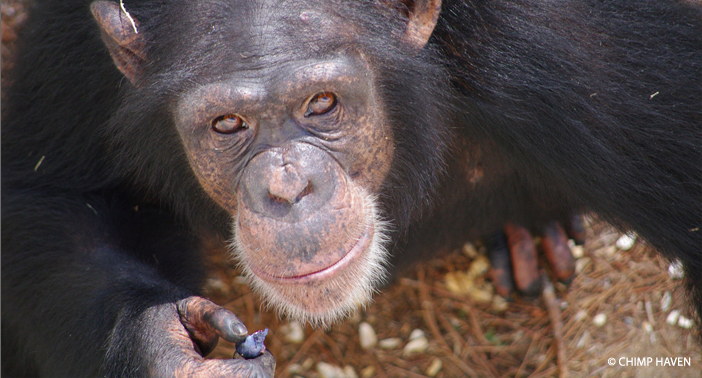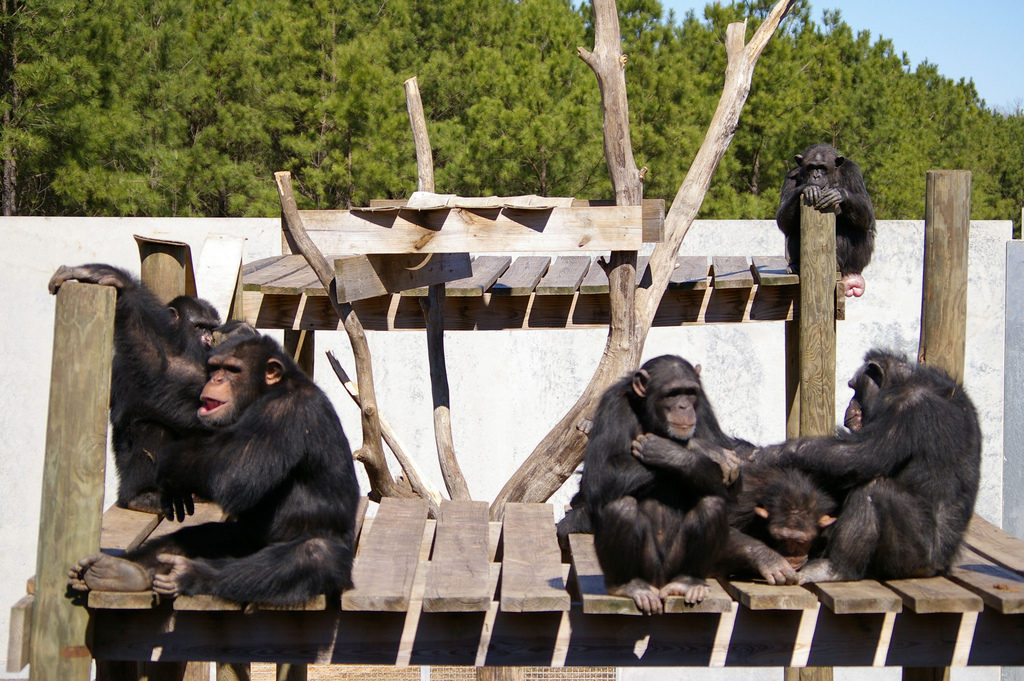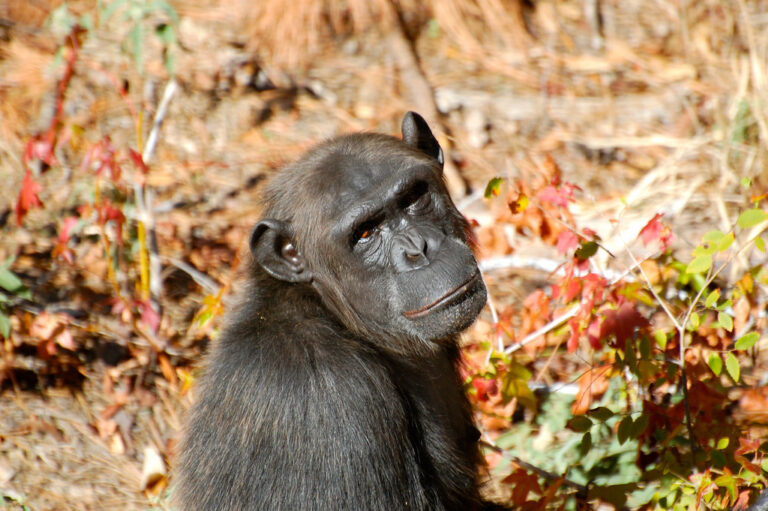What began as a step toward freedom for research chimpanzees, is now a solid plan to realize that goal. This is the way out, and there’s light at the end of the tunnel we can finally see.
Animal research has always lived at the crossroads between considering what is good for humankind, and what is the right of the animals being used. The cost and benefit model does not always consider the true effects, or allow for agreement around what we deem ethical. In 2013, progress occurred in the form of a deeper examination of the merits of using primates for biomedical research, and a decision was made to significantly reduce the number of chimpanzees in this form of testing. Luckily, it was only the beginning.
The original plan to retain a colony of 50 chimpanzees was reversed after an NIH study proved that their usefulness in biomedical research unfounded. In 2015, NIH thought deeply about this and decided that their time using chimps for research was over, retiring the last federally-owned chimpanzees from a life as research subjects. Their retirement would mean the eventual release and relocation of all 350 NIH owned or supported chimpanzees as required by the Chimpanzee Health Improvement, Maintenance and Protection Act (CHIMP Act of 2000). Chimps would be freed from cages and experiments, establishing a new home in a federal sanctuary where they could form or join social groups, enabling them to simply be – climbing and living free.

The retirement of these chimps would happen at a place called Chimp Haven, a forested area of 200 acres in Louisiana, with a dynamic environment staffed by trained animal behaviorists and veterinarians specializing in primate medicine. The federal sanctuary has housed and cared for over 300 retired chimpanzees already and currently has an overall capacity for approximately 230, with space for around 25 more. However, the transport of animals from NIH facilities, both in procedure and timing was still a huge question – until now.
With proper prioritization of groups for release, modeling of the aging population at Chimp Haven and projections for capacity growth, NIH now knows the approximate numbers of chimps that can be transferred in a specific timeline. Each group of three remaining facilities (APF, KCCMR and SNPRC) will be released to Chimp Haven “…on a timescale that will allow for optimal transition of each individual chimpanzee with careful consideration of their welfare, including their health and social grouping.” As animal transfers are sometimes considered potentially harmful, it is satisfying to note it was found that there is no proven link between relocation and premature death of captive chimpanzees.
With such advances, there must also come a reality check: In order for hundreds of these chimps to find homes at the sanctuary, Chimp Haven will need to expand and require continued and substantial support from the government, NIH, legislators and the public to do so. This task is by no means out of the scope of what can be done, and with the existing momentum – having transported 19 chimps just this spring – it will be done. Our combined support is essential from now through a transitioning government.

This kind of mobilization would not have been possible without the work to extend endangered species protections to also include captive chimps. The final rule on this measure went into effect 90 days after it’s publication in the Federal Register on June 16, 2015, and was an enormous win for our wonderful primate cousins. Seeing these chimps as worth protection and better lives brought us here, and is proof of the importance of making this kind of legislation happen.
Last year, Jane and JGI responded to the welcome and exciting news: “ We read with great joy the announcement … that these 50 will now also be retired from research…But our work is not done. We must ensure that all ex-lab chimpanzees can be provided with sanctuaries where, for the rest of their lives, their physical, behavioural and social needs will be met.”
Jane and JGI congratulate NIH for this long awaited movement toward successful completion of just that – the total and proper retirement of their research chimps at last. Additionally, Chimp Haven deserves much praise for their dedication and efforts to care for existing retired chimps, and perpetual efforts to grow their facilities for the benefit of even more animals.
You know what they say – happy retired biomedical research chimps, happy life.



